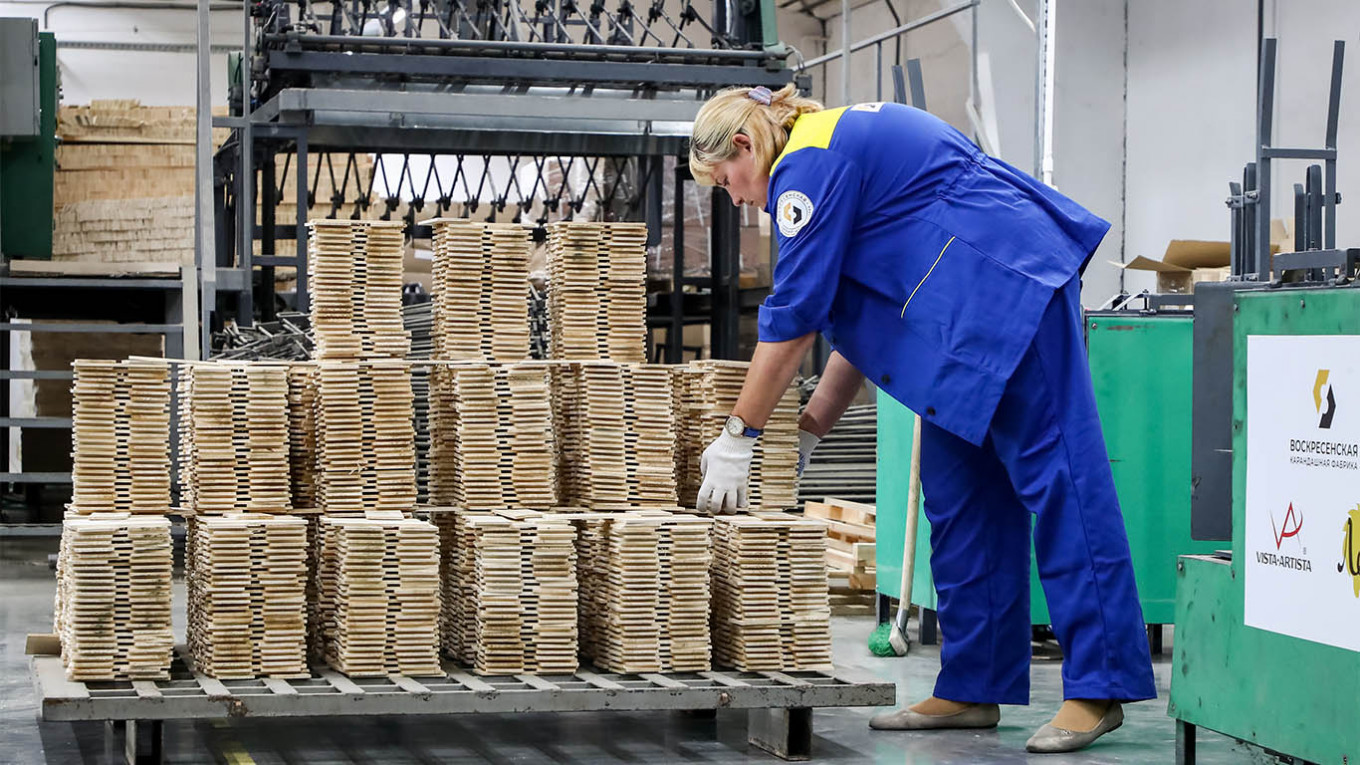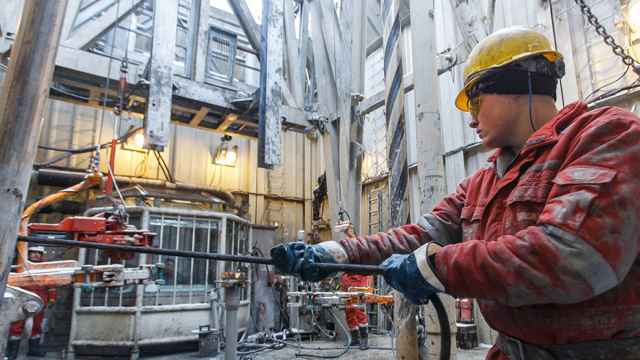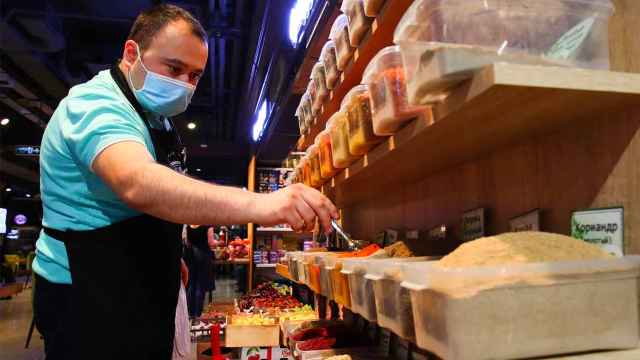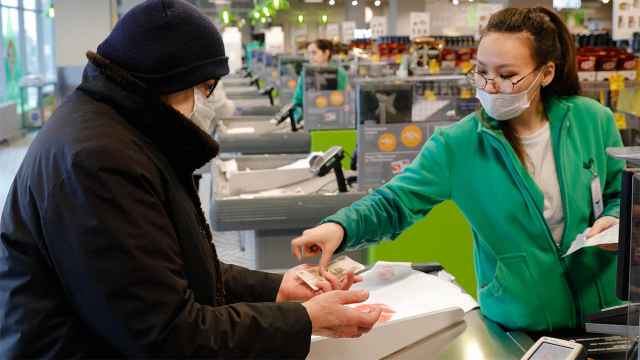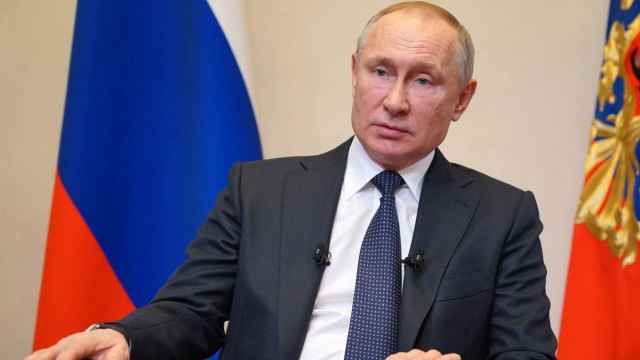The Russian government expects the coronavirus to inflict significantly less damage on the country’s economy than it first feared.
The Economy Ministry is now predicting GDP will fall by 3.9% in 2020, up from its previous forecast of a 5% contraction, Kommersant reported Monday.
Russia’s economy has not taken as big a hit from the pandemic as other European economies, recording a contraction of 8.5% in the second quarter of the year, according to official statistics. That compares to a fall of more than 20% in the U.K, and double-digit declines in all of Europe’s major economies.
“The more moderate hit to Russia’s economy is likely due to a shorter and ‘softer’ lockdown, and the lower share of consumer services in Russia’s consumption,” Evghenia Sleptsova, Oxford Economics’ senior emerging markets economist wrote in a recent report tracking Russia’s economic recovery.
Economic activity has bounced back strongly from record lows, and is now at around 95% of pre-coronavirus levels, Oxford Economics estimates.
Interest rate cuts from the Central Bank and a stabilization in global oil prices have also helped cushion the blow from the pandemic, economists say — a big difference from the crisis Russia faced in 2014-16, when the country chose to hike interest rates in a bid to stem a rapid depreciation in the value of the ruble.
The Economy Ministry also upgraded its outlook on investment, which it predicts will decline by 6.6% this year, compared to previous expectations of a 12% fall.
Despite a string of upgrades from both official and independent forecasters, there is still a high degree of uncertainty over where the Russian economy will head over the next few months. Economists say the recent uptick in activity could be a short-lived post-quarantine spurt which may fizzle out once the longer-term effects of cuts to wages and investment start to be felt throughout the economy. Meanwhile the prospect of a second wave and another partial economic shutdown remain the biggest risks to the recovery.
A Message from The Moscow Times:
Dear readers,
We are facing unprecedented challenges. Russia's Prosecutor General's Office has designated The Moscow Times as an "undesirable" organization, criminalizing our work and putting our staff at risk of prosecution. This follows our earlier unjust labeling as a "foreign agent."
These actions are direct attempts to silence independent journalism in Russia. The authorities claim our work "discredits the decisions of the Russian leadership." We see things differently: we strive to provide accurate, unbiased reporting on Russia.
We, the journalists of The Moscow Times, refuse to be silenced. But to continue our work, we need your help.
Your support, no matter how small, makes a world of difference. If you can, please support us monthly starting from just $2. It's quick to set up, and every contribution makes a significant impact.
By supporting The Moscow Times, you're defending open, independent journalism in the face of repression. Thank you for standing with us.
Remind me later.


